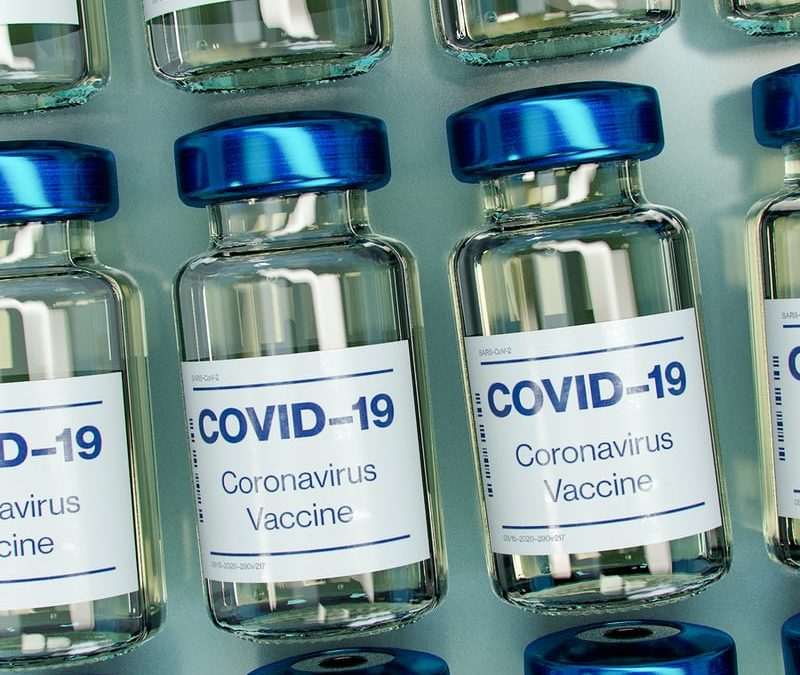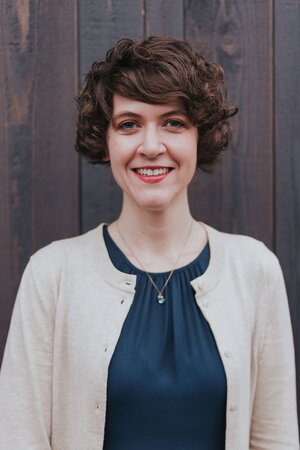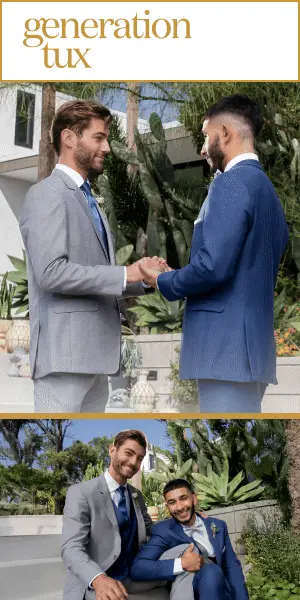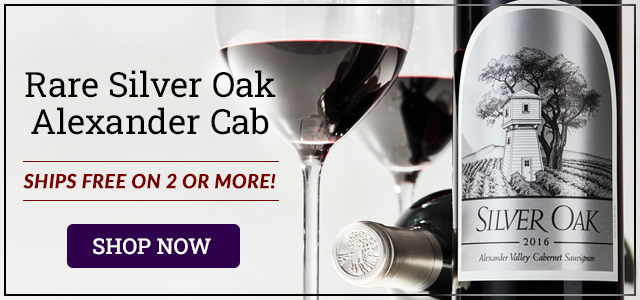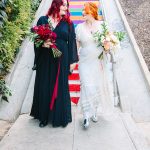I’m going to tell you right from the jump that if you do not believe in the efficacy of vaccines, this article is not for you.
Still here?
Great. Let’s talk about the COVID vaccine and wedding planning.
Should I require my wedding guests and vendors take the COVID vaccine?
Yes, if getting a vaccine is at all possible for them. The better question is how do you even start this conversation.
I first published this story in November 2020 (actually, the same week that news broke that the pharmaceutical company Pfizer had a very promising option). Now, here we are in February 2021, and just last week President Joe Biden announced that the U.S. will have enough vaccine by the end of the summer to inoculate 300 million Americans.
Unfortunately, “end of the summer” won’t be soon enough for many weddings to happen as originally planned. There is also a gray area of “What do I do if some of my guests are vaccinated and some aren’t and what about the guests who don’t believe in the efficacy of vaccines?”
I have a few ideas. First, no matter what the couple sets the tone. That’s true whether we’re talking about COVID vaccines + wedding or COVID testing + wedding.
What does “the couple sets the tone” mean?
How you and your partner carry yourselves at your wedding signals how other guests should behave themselves. This has always been true and it is especially true in our new world. I saw this reality present very strongly at the one wedding I have so far done during COVID.
This couple took every safety precaution imaginable for their wedding. Masks were required. Tables were social distanced. Hand sanitizer was readily available. Importantly, the wedding met county and state requirements for events. (Read: It was not illegal.)
Everything this couple could do to make their wedding work during COVID, they did. Whether or not they were successful is another story; I personally didn’t see the couple relax and enjoy themselves fully until everyone but their immediate family left but, for our current purposes, the important part is that the couple set the rules and then—this part is crucial—they stuck to them.
Because they wore their masks, so did their guests. Because they kept a safe and respectful distance when talking to people, so did their guests. Because they made health and safety a priority, so did their guests.
What does this mean for your wedding + vaccine ? It means that as always, the couple will be responsible for setting the rules for their wedding.
This is a heavy burden to put on people who are often already strapped for time, money, and brainpower when planning what is often the biggest event of their lives, but it is also a requirement if a couple wants to have a wedding that prioritizes the well-being of those they love best.
A lot of this will come down to messaging. So, how do you ask your guests and also your vendors?
How do I ask my guests?
You just ask.
I know, I know. We are a long way from the days when the most complicated question you asked your guests was “chicken,” “steak,” or “fish” but such is the cost of having a wedding during COVID. We must talk about safety. We must do this not for any of the very good reasons you’re thinking of but because the point of a wedding is to feel joy and it is much easier to feel joy if we also feel safe.
How does the asking look? Try something like:
As we’re sure you can imagine, we are closely monitoring COVID and how it will impact our wedding plans. We don’t know what’s ahead but please know that no matter what, your health and safety are our priority.
As such, we are asking all guests and vendors who are attending our wedding in-person to please be vaccinated before attending the wedding. If vaccination is not possible (and we understand it may not be), please take a COVID test the week of the wedding.
Two IMPORTANT notes about that last line:
1) I said “the week of the wedding” but obviously, the closer to the wedding date that you can have people take tests the better. Testing is not foolproof. People could still catch COVID if they don’t quarantine between taking the testing and going to your wedding.
2) I’m not sure if people who are vaccinated should also take a test. More on that below under the section “OK, great but I still have questions.”
If you’re like me, you read the above and your brain immediately started spinning with logistics. How do we track this? Do we ask people for proof? What if they’re traveling?
I’ve thought about this a lot and honestly, I think the important thing is that you set a standard at all. This is a lot more than a lot of people are doing for their weddings and that lack of standards is what gets us into trouble (“trouble,” by the way, means “people dying of COVID”).
Would it be ideal if you had every guest and vendor prove that they had been fully vaccinated and/or been tested? Yes! Of course that is better! It can also be a logistical nightmare as the state of New York is currently experiencing.
So let’s just take the first right step of talking about testing and/or vaccines at all.
OK, great but I still have questions
Here are my thoughts on a few. As you already know, I am a wedding planner, not a doctor or lawyer so please do not consider the following medical or legal advice.
What if people are traveling? First, does your state have a travel advisory? Mine does and as much as I wish people were following it and legitimately quarantining for 14 days upon arriving in Oregon, I know that they are not. So what I ask is if you have a lot of travelers in your guest count, please lower your guest count.
Give precedence to those guests who are your VIPs—the people who if they are not at your wedding, it will not feel like your wedding. If many of those guests must get on an airplane and/or cross state lines to get to your wedding, invite them and then politely ask other people to celebrate your love in a different way that isn’t in-person.
This plan is not perfect (and, arguably, still illegal depending on the language of your state’s travel advisory) but it is, in my opinion, better than the alternative: Have wedding guests travel and have them interact with many other people at your wedding.
Do you need to have people take a COVID test if they are also vaccinated? I don’t know. Just yesterday I was reading about new guidance from the CDC that says if you’re fully vaccinated against COVID and not presenting symptoms after being exposed to COVID, you don’t have to quarantine.
I think this means that because the COVID vaccine usually suppresses COVID symptoms in people, they’re less likely to give it to other people. So do they need to take a test if they’re not showing symptoms? Again, not a doctor and again, new and emerging science so my advice: When in doubt, test — and remember that testing is no guarantee. It is just one tool that is only as effective as you make it and as you combine it with other safety measures.
What if I have guests who either can’t take the vaccine for medical reasons and/or don’t believe in the efficacy of vaccines? Please ask them not to come to your wedding in-person. If they are part of the first group, I bet they will appreciate this (they don’t want to get sick themselves!). If they are part of the second group, well, I mean, this is a boundary you are setting for your wedding and I hope they respect it.
Here’s one way you could share this news with them: “If you are choosing to not be vaccinated, please plan to celebrate our wedding in a different capacity [insert details about a virtual option, if there is a virtual option and/or your registry (seriously, people will still very much want to buy you a gift because it is a way people like to show love and support)].”
Could these people take a COVID test and still come to your wedding in-person? I mean, probably. Feel free to offer that option to them, if you want. You’d use the same language above but add a line asking them to take a test the week of your wedding.
Why is this worth it? I talk about this a lot in this piece: “Should I Ask My Wedding Guests and Vendors to Take a COVID Test?” TLDR: It’s a lot easier to feel joy when we also feel safe.
What if the guests we’re talking about are kids?
A bride wrote me yesterday with this question. She and her partner are only asking vaccinated guests to attend their 2021 wedding in-person; everyone else can attend virtually. Unfortunately, there’s a group of guests who are under the age of 16 and thus particularly unlikely to be vaccinated before the wedding.
What do they do?
The biggest problem here is how do we make sure the kids don’t get sick. I offered this bride and her partner the following advice:
-
- For sure talk to the parent(s) and/or guardian(s) of these children. I imagine this conversation is one they are already having because of school.Ask all of your guests to get tested even if they are vaccinated. An extra layer of safety to keep the kids safe. Still leaves risk because tests are not the same as vaccines.
- Require that vendors get tested even if they are vaccinated — and also ask if they are vaccinated. Bonus points if the couple offers to cover the price of those tests, as needed (this may not be needed). Skip ahead to the section “What about wedding vendors?” if you want to read more on this topic.
- Reduce the guest count even further. I don’t say this lightly, particularly as many people, including this couple, have already significantly reduced their guest list. I just recommend this step because one of the best tools we have against COVID is to limit how many people are in the space to begin with.
Based on my conversation with this particular bride, it sounded like the group of children we were discussing were her VIPs, i.e. they are the people who need to be at her wedding in-person to make it feel like her wedding.
If this is the case, I recommended she and her partner prioritize the VIPs and politely ask other guests—even vaccinated ones—to celebrate the wedding in a different capacity. It won’t remove the risk but it will help and we need everything we can to minimize risk because we don’t want people to die because of your wedding.
How do I tell people this news?
KISS (“keep it simple, stupid” except you are not stupid so let’s say “silly” instead).
If you have a wedding website, post it there. There’s a good chance your guests are not actively checking your wedding website unless you tell them to so this step will also require a BCC’d email, text thread(s), round of calls to direct them to this spot.
Alternatively, if you haven’t sent save-the-dates and/or invites but are planning to, include language on that correspondence that tells people that you are thinking about COVID and where they can learn what you’re thinking. For example: “For the COVID safety rules for our wedding, please visit [insert URL, Facebook group, etc.]”
Remember: Save-the-dates and/or invites don’t have to be fancy. In the era of COVID, it can often be easiest to go with an online option like Paperless Post.
A digital option is, arguably, not as aesthetically pleasing as a paper option but honestly, the biggest downside to me is that a digital option doesn’t support your local small print shop. If you want to support your local small print shop, maybe buy something else from them (i.e. thank-you cards, menus, invites to another future gathering, etc.)
What about wedding vendors?
A bride recently wrote me with a question about vendors. What do you do if you know that vendors you’ve hired are, as she put it, “treating this pandemic vastly more laxly than you would want from anyone attending your wedding”?
My advice for her is the same as my advice about guests: You, couple, get to set the rules for your wedding. As a person who works in the service industry, I ask you to please be kind about this. Lead with empathy. Do not presume that what you saw on Instagram is the whole story. When is it ever?
But yes, you can ask for clarification. This is your right, especially if someone is making you feel unsafe. What does that look like? I would recommend starting with an email that asks for a call. (Calls are so much better for sussing out human emotion, don’t you think?)
What do you write in the email?
Try this on for size:
“Hi, [insert vendor’s name]. As you know, [your partner’s name] and I are really looking forward to celebrating our wedding with you. It’s also of supreme importance to us that we prioritize the health and safety of everyone who attends. In that spirit, would you have time for a quick phone call [insert timeframe that works for you and your partner]? We want to discuss the COVID safety policy for our wedding.”
As a vendor, I will say that if I got this email from a couple, I wouldn’t feel angry or upset. I would feel relieved (and based on what I’ve heard from many other vendors, they would, too).
In that call, talk about what you expect from them if they want to work your wedding in-person (in this case, a vaccine and/or testing). You are within your rights to do this and if you need further motivation, consider that many wedding vendors work many weddings back-to-back. It is in your best interest (and, I would argue, also the vendor’s) to know if they caught COVID at one wedding before going to another.
If you haven’t hired someone yet, I recommend you start asking this question: “Would you be willing to take a COVID test before our wedding? Would you be willing to be vaccinated, if at all possible?” Believe me, wedding vendors are thinking about this stuff A LOT and quality vendors will have quality answers.
Do I need to pay for this?
I have heard of couples paying for their vendors and guests to get tested—most notably, in this story. I recognize that paying for everyone at your wedding (guests and vendors) may be prohibitive. Totally fair!
As such, I recommend taking this as a case-by-case basis and being very clear that you two are open to talking about options (i.e. “If money is the thing stopping you from taking a COVID test, please tell us and we will figure it out.”)
When it comes to vaccines, the vaccine itself is free. There may be administration charges based on this FAQ from the Centers for Disease Control and Prevention (CDC) but my understanding is that it should be pretty likely a person can get a COVID vaccine for free, if they’re able to get one at all.
So, what now?
I’ve said it before and I’ll say it again: The happiest couples during COVID are the ones who have made the hardest choices.
If you need a place to start, use this prioritization worksheet to answer the most important question in wedding planning: Why are we having a wedding? Do this together.
Then walk through the bullet points of what a COVID safety policy looks like for a wedding. Ask each other: “Does this feel the way that we want it to feel?”
Need more? Totally fair. This stuff is complicated. Try these COVID resources on for size.
Last but not least: When in doubt, please email me (elisabeth@elisabethkramer.com). I will do my best to help you because I so appreciate what you are doing: Trying to get married in a way that centers health, safety and joy. That is not easy so thank you. Thank you for doing the hard thing.
This article was first published here, and is reprinted with the author’s permission.
Featured photo by Daniel Schludi is a mockup of the COVID vaccine and not the actual vaccine.
Elisabeth Kramer
MOST VIEWED STORIES
- Team USA Hockey Captain Hilary Knight Proposes to Olympic Speed Skater Brittany Bowe at Milan Cortina Games
- Khasan and Jason’s Four Seasons Tamarindo Wedding Featured P!nk as the Officiant and Ralph Lauren Tuxedos
- Tanaine and Daniella’s Classic Black and White Atlanta Wedding
- Frankie and Ryan’s Romantic San Francisco City Hall Wedding
- An At-Home Love Story in Decatur, GA: Amy and Britt’s Lifestyle Engagement Session



